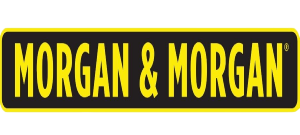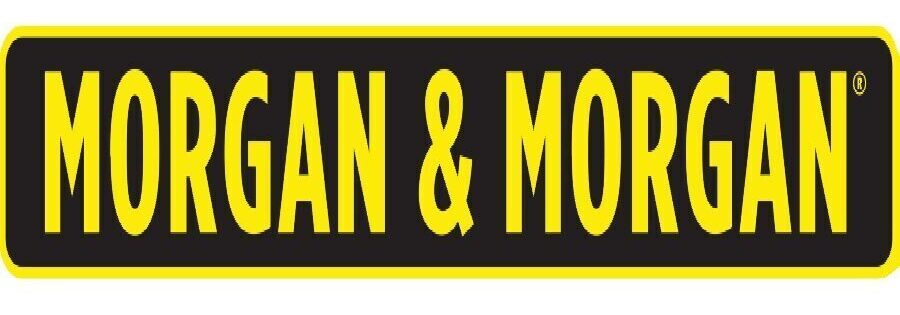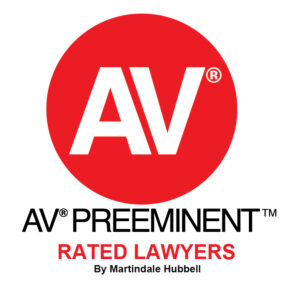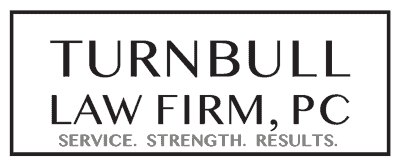Questions & Answers About Commercial Vehicle Accident & Injury Claims
What types of commercial vehicle accident cases do law firms handle?
Delivery Truck Accidents:
Injuries from crashes involving Amazon vans, UPS trucks, FedEx delivery vehicles, and other branded fleet trucks. These often occur in residential areas or during rushed delivery routes, and may involve overworked drivers or missed safety protocols.
Box Truck and Service Vehicle Crashes:
Accidents caused by box trucks, utility trucks, contractor vehicles, cable service trucks, and other business-operated work vehicles. These vehicles often have limited visibility and operate in urban and residential zones, increasing the risk of serious injury.
Semi-Truck, Big Rig, and 18-Wheeler Collisions:
Cases involving large freight trucks on highways and major roads. These high-impact crashes often result in traumatic brain injuries, internal bleeding, or wrongful death, and may involve violations of federal trucking regulations.
Fleet Vehicle and Logistics Truck Accidents:
Crashes involving logistics companies, regional shipping fleets, or interstate haulers. These incidents often require investigation into driver fatigue, improper loading, or lack of maintenance, and can include multiple liable parties.
Garbage Truck and Construction Vehicle Accidents:
Accidents involving waste management trucks, cement trucks, and other large construction-related vehicles operated by municipalities or private contractors. These vehicles often operate in tight spaces and carry significant force in a collision.
Traumatic Brain Injuries and Spinal Cord Injuries:
These life-altering injuries are common in high-speed commercial truck crashes, especially involving larger vehicles like 18-wheelers or overloaded box trucks.
Wrongful Death Claims:
When a loved one dies in a commercial vehicle accident, law firms pursue compensation from trucking companies, delivery services, or corporate fleets that may be responsible due to negligence, poor training, or equipment failure.
What types of damages can a commercial truck accident lawyer help me recover?
Medical Expenses
Compensation for current and future medical costs related to the injury, including emergency transport, surgery, hospital stays, rehabilitation, specialist care, and long-term treatment plans — often necessary in high-impact truck crashes.
Lost Wages & Loss of Earning Capacity
Covers wages lost during recovery, as well as future income loss if the injury prevents the victim from returning to their job, especially in cases involving permanent disability or workplace restrictions caused by commercial truck-related injuries.
Pain and Suffering
Compensation for physical pain and emotional trauma caused by the crash. This may include chronic pain, sleep disruption, anxiety, depression, and overall loss of enjoyment of life due to the impact of a serious commercial vehicle accident.
Wrongful Death Damages
In fatal commercial vehicle crashes, surviving family members may seek compensation for funeral expenses, loss of financial support, and emotional suffering, particularly when the death was caused by a negligent truck driver or unsafe fleet operation.
Property Damage
Covers the repair or replacement of property damaged in the crash, such as the victim’s personal vehicle or valuables inside the vehicle at the time of the collision.
Permanent Disability or Disfigurement
Truck accidents frequently lead to long-term or life-altering injuries. Victims may be eligible for compensation due to amputations, nerve damage, paralysis, or facial disfigurement, which significantly reduce quality of life.
Rehabilitation & Recovery Support
Includes coverage for physical therapy, occupational therapy, and long-term care assistance required for recovery from serious injuries often sustained in commercial truck wrecks.
Emotional Distress
Compensation for psychological trauma, such as post-traumatic stress disorder (PTSD), depression, and other emotional injuries caused by the force and aftermath of a major truck accident.
Loss of Consortium
Damages awarded to spouses or partners for the impact the injury has on the relationship, including loss of companionship, emotional connection, and intimacy.
Punitive Damages
In cases involving gross negligence, such as violations of federal trucking regulations, overloaded cargo, or reckless behavior by a commercial driver, punitive damages may be awarded to punish the defendant and deter future misconduct.
Since commercial truck accident claims often involve multiple parties, corporate insurance policies, and state and federal regulations, working with a top truck accident lawyer is essential to maximize your compensation and navigate the complexities of the case.
How long do I have to file a lawsuit after a truck accident?
For example, if the crash involved a government-operated vehicle, like a city utility truck or municipal waste truck, the time to file a claim may be much shorter — sometimes just 6 months. Deadlines may also differ if the injured party is a minor or if the injury wasn’t discovered immediately.
Since missing the filing deadline can prevent you from recovering compensation entirely, it’s critical to speak with an experienced
What is the average settlement for a commercial vehicle injury claim?
For relatively minor injuries—such as soft tissue damage, sprains, or whiplash caused by low-speed delivery truck collisions—settlements may range from $5,000 to $20,000. These cases often cover emergency treatment, outpatient care, and short-term lost income.
In cases involving moderate injuries like fractures, herniated discs, or injuries that require hospitalization or physical therapy due to a box truck, logistics vehicle, or freight carrier crash, settlements typically fall between $25,000 and $100,000. These claims may involve longer recovery times, lost work, and ongoing rehabilitation.
When a commercial vehicle accident results in serious harm—such as traumatic brain injuries, spinal cord damage, or permanent disability—settlements can exceed $100,000 and often reach into the millions. These claims account for extensive medical treatment, long-term care, pain and suffering, and future lost earnings.
In fatal commercial truck crashes, surviving family members may file wrongful death claims seeking compensation for funeral costs, lost financial support, and emotional trauma. Settlements in these cases can vary widely but often reach well over $1 million depending on the circumstances and the age, income, and family situation of the deceased.
If gross negligence was involved—such as a trucking company failing to maintain vehicles, ignoring safety regulations, or overworking drivers—punitive damages may be awarded in addition to the standard settlement. These are designed to punish wrongdoing and deter similar conduct in the future.
Because commercial vehicle crashes involve complex factors like multiple liable parties, federal safety rules, and high-value insurance policies, it’s critical to work with the best
How long do most truck accident and other related personal injury cases take?
Cases involving delivery trucks, freight carriers, or company-operated vehicles are often more complex than standard auto accidents. When multiple parties are involved—such as the truck driver, the employer, third-party contractors, and insurance carriers—determining liability and securing compensation takes additional time.
The severity of the injuries plays a major role in the case timeline. If the accident caused a traumatic brain injury, spinal damage, or permanent disability, more time is needed to fully assess long-term medical needs and potential future damages. Many truck accident lawyers recommend waiting until the injured person reaches maximum medical improvement (MMI)—the point at which their condition is stable—before negotiating a settlement. This ensures that all future costs are accounted for.
Another major factor is the insurance company’s approach. In high-stakes commercial vehicle claims, insurers may attempt to delay proceedings, dispute fault, or offer inadequate settlements, especially if large trucking companies or national delivery fleets are involved. These tactics can significantly extend the timeline of the case.
If a lawsuit becomes necessary, the legal process adds further time. Discovery, motion hearings, expert testimony, and court scheduling can prolong the resolution, particularly in jurisdictions with crowded dockets. However, most truck accident cases do settle before trial—provided both parties are willing to engage in meaningful negotiation.
The location of the case also matters. Some courts move faster than others, and procedural differences across states can influence how long the claim takes. Additionally, cases that involve corporate defendants, federal safety violations, or regulatory breaches may require further investigation and expert analysis, which adds to the overall timeline.
Because no two commercial vehicle cases are alike, the best way to get a reliable estimate of how long your case may take is to consult with an experienced truck injury lawyer in
How do I know if I have a valid commercial truck injury claim?
To build a valid claim, you’ll need to show that the accident resulted in measurable damages, such as medical bills, lost income, long-term injuries, or pain and suffering. Supporting evidence—like accident reports, medical records, photos from the scene, and witness statements—can help demonstrate that the commercial vehicle crash directly caused your injuries.
If the trucking company or their insurance provider disputes liability or offers a low settlement, it's important to speak with a truck accident lawyer who has experience with commercial vehicle claims. A qualified attorney can evaluate the details of your case, determine fault, and help you pursue the full compensation you're entitled to.
How much does it cost to hire a truck accident lawyer?
If your case settles or results in a favorable verdict, the attorney’s fee is typically deducted from your final compensation. If the case is not successful, you usually don’t owe any attorney fees. In many cases, the law firm may also front expenses such as court filing fees, accident reconstruction experts, and investigation costs—though these may be reimbursed from the final settlement amount.
Because commercial vehicle accident claims can be complex and often involve corporate defendants or multiple insurance policies, it's important to discuss fee details with the truck injury lawyer during your free consultation. That way, you'll understand how the contingency fee works, what percentage they charge, and whether any case-related expenses are your responsibility if the case is not won.
What makes commercial vehicle accidents more complicated than regular car crashes?
One major factor that makes these cases more difficult is liability, as more than one party may be responsible. In a big rig truck accident, 18-wheeler wreck, or semi-truck collision, liability could fall on the driver, trucking company, vehicle manufacturer, or a third-party maintenance provider. Similarly, in a garbage truck accident, delivery van accident, or tow truck accident, the company that owns or operates the vehicle may also be held accountable.
Another issue is insurance and compensation, as commercial vehicles are often covered by high-limit policies, meaning insurance companies will aggressively defend against claims. A commercial truck accident attorney can investigate the accident, gather evidence, and challenge insurance adjusters who attempt to minimize payouts.
Additionally, Amazon truck accidents, UPS truck accidents, and FedEx truck accidents involve corporate policies and strict delivery schedules, which can contribute to driver fatigue or reckless driving. Proving violations of federal trucking regulations can strengthen your case and increase the chances of securing a higher settlement.
Given the complexities of commercial vehicle accidents, working with an experienced commercial vehicle accident lawyer can help protect your rights, ensure all responsible parties are held accountable, and maximize your compensation. If you or a loved one suffered serious injuries in a truck wreck or commercial vehicle crash, speaking with a lawyer for wrecks can provide guidance on the best legal options available.
Can I sue if I was hit by a UPS, Amazon, or FedEx delivery truck?
Whether you were a driver or passenger injured in the crash, you can pursue compensation for medical bills, lost wages, pain and suffering, and other damages. In many cases, liability may extend beyond the driver to include the delivery company itself, especially if the driver was acting within the scope of employment, poorly trained, or driving under unsafe conditions.
Lawsuits involving Amazon, UPS, or FedEx delivery trucks can be complex, since these companies often use third-party contractors, subcontractors, or logistics partners. A delivery truck injury lawyer can investigate who is legally responsible and help you recover the full compensation you deserve.
Can both drivers and passengers file a claim after a commercial vehicle accident?
Injured passengers often have a strong legal position since they are typically not considered at fault for the collision. Passengers can file claims against the at-fault party—whether it’s the truck driver, trucking company, or another negligent driver involved in the crash.
Commercial drivers who are injured while on the job may be entitled to file a personal injury claim, a workers’ compensation claim, or in some cases, both—depending on the nature of the crash and who was responsible. If another party caused the collision, the injured truck driver may be able to pursue a third-party liability claim for damages beyond what workers' comp covers.
Since commercial vehicle crashes often involve complex liability issues and multiple insurance policies, working with an experienced truck injury lawyer is the best way to protect your rights. Your attorney can evaluate your case, determine all available options, and fight to secure maximum compensation—whether you were behind the wheel or riding as a passenger.
Do 18-wheeler or other large truck accident cases take longer to settle than regular commercial vehicle accidents?
First, the injuries in 18-wheeler accidents are often more severe due to the size and weight of the vehicle. These high-impact crashes frequently involve traumatic brain injuries, spinal cord damage, or even wrongful death — and serious injuries typically require longer medical treatment and time to reach maximum medical improvement (MMI) before settlement negotiations can begin.
Second, large truck accident cases often involve multiple parties beyond just the driver. This can include the trucking company, cargo loaders, maintenance contractors, and insurance providers with layered policies. Sorting through who is legally responsible adds to the timeline.
Additionally, 18-wheeler cases often trigger a deeper investigation into federal trucking regulations, such as logbook violations, hours of service, vehicle inspections, or safety compliance. These require expert reviews and can slow down the claim process.
By contrast, regular commercial truck accidents — such as those involving box trucks, utility trucks, or small delivery vehicles — may resolve faster when fault is clear, injuries are less severe, and fewer corporate entities are involved.
Because of the potential for higher compensation and increased complexity, 18-wheeler accident cases are handled more aggressively by insurance companies. Having an experienced truck injury lawyer on your side is critical to ensure your case is thoroughly built and not rushed into a low settlement offer.
How do I get a free consultation with
Whether you were injured as a driver, passenger or a pedestrian hit by a truck, it's important to speak with someone who understands how to handle complex trucking claims. Reaching out to the best truck injury law firms is the first step toward getting the legal help you may need.
Elite reviews
Editorially researched Highlights pros & cons
-
Morgan & Morgan
Read review -
Alexander Shunnarah
Read review -
Turnbull Law Firm
Read review



























